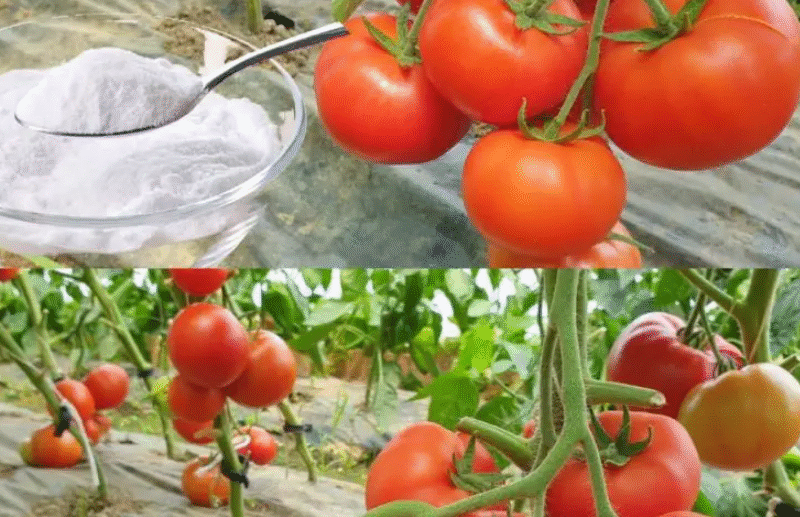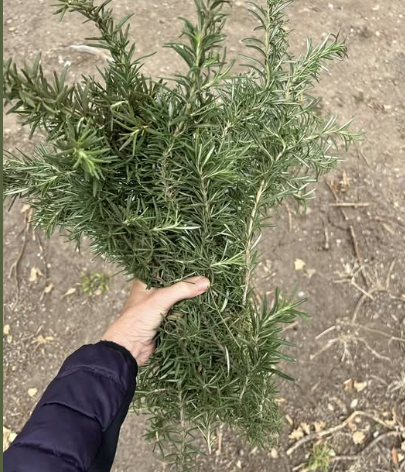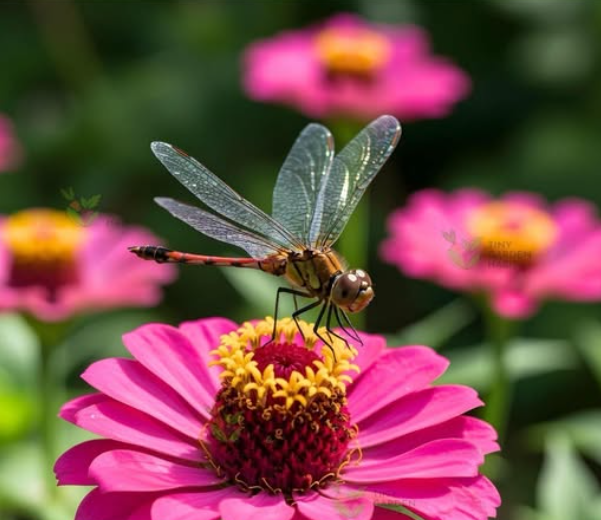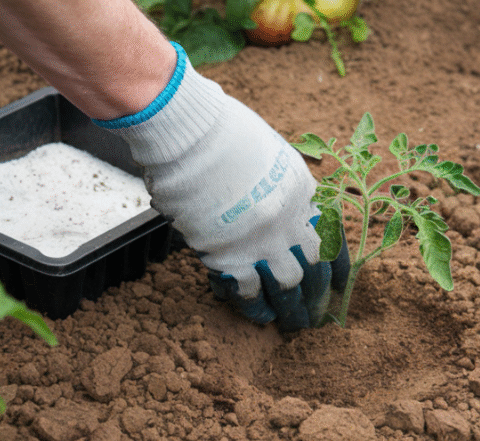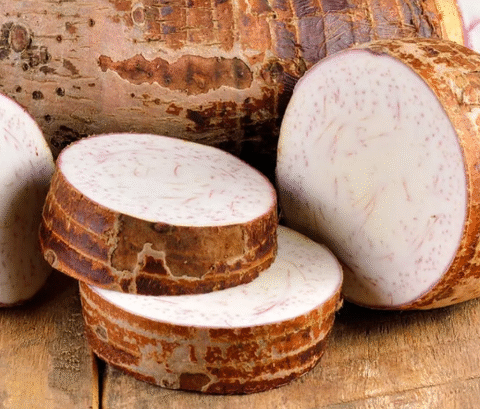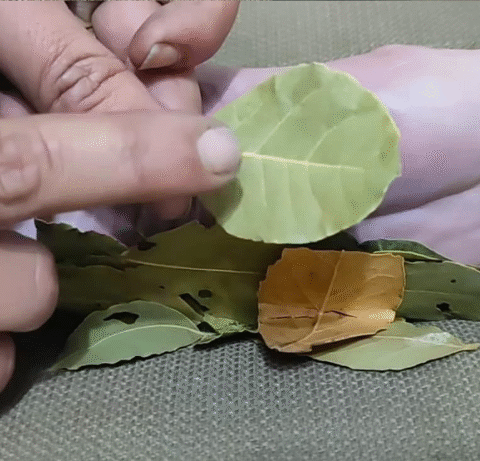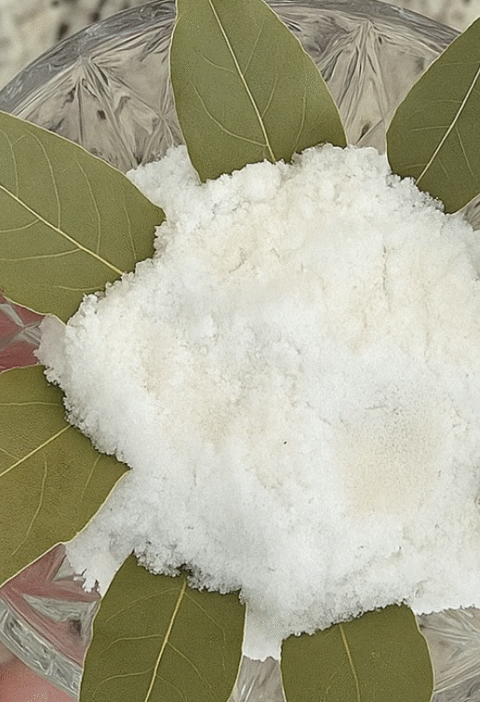Baking Soda is a Gardener’s Best Friend: 10 Clever Uses in the Garden 🌱🧂
One of the most powerful allies in your gardening toolkit isn’t a fancy chemical or tool—it’s baking soda. This humble pantry staple offers natural, affordable solutions for pest control, soil balance, plant health, and more. Below are ten expert-backed, gardener-approved ways to use baking soda to cultivate a healthier, more vibrant garden.
1. Natural Fungicide for Plant Diseases 🍃
Powdery mildew, black spot, and other fungal issues can plague plants, especially in humid conditions. Dr. Leila Nour, plant pathologist, notes, “Baking soda disrupts fungal cell membranes, helping to control common infections naturally.”
How to Use
- Mix 1 tbsp baking soda, 1 gallon water, and 1 tsp mild liquid soap.
- Spray on affected leaves every 7–14 days.
- Best applied in early morning or evening to avoid sunburn.
2. Organic Weed Killer 🌿
Baking soda dehydrates and damages the cell structure of weeds. Sprinkle directly onto weeds growing in paths or between patio stones, keeping it away from desirable plants.
3. Pest Repellent 🐛
Mix equal parts baking soda and flour, then dust plants to repel cabbage worms, aphids, and other soft-bodied pests. Prof. Mark Benson explains, “Baking soda alters the pest’s environment, making it inhospitable without harming the plant.”
4. Soil pH Amendment 🌾
Acidic soil? Baking soda can help. While not a substitute for lime, it can offer quick relief in small areas.
How to Use
- Test soil pH first using a kit or meter.
- If soil is overly acidic (pH < 6), lightly sprinkle baking soda and water in.
- Retest after one week before reapplying.
5. Sweeten Tomatoes 🍅
Sprinkle a small amount (½ tsp) around the base of tomato plants to reduce acidity in the soil, producing sweeter fruit. Don’t overdo it—too much can harm roots.
6. Compost Enhancer ♻️
Speed up decomposition by adding 1–2 tbsp of baking soda weekly to your compost pile. It helps control acidity and balances pH to support microbial activity.
7. Odor Neutralizer 🌬️
Sprinkle baking soda in compost bins or areas with strong fertilizer smells. It absorbs and neutralizes foul odors naturally without harming plants.
8. Tool Cleaner 🔧
Mix baking soda with a little water to form a paste. Scrub gardening tools to remove dirt, sap, and rust. Rinse and dry thoroughly.
9. Seed Germination Booster 🌱
Soaking seeds in a mild baking soda solution can help soften seed coats and speed up germination. Try this for tough-seed varieties like beans or okra.
How to Use
- Mix 1/2 tsp baking soda in 2 cups warm water.
- Soak seeds for 6–12 hours before planting.
10. Ant Control Around Plants 🐜
Mix baking soda with powdered sugar in a 1:1 ratio. Place in shallow containers near ant trails. Ants are attracted to sugar but killed by the baking soda when ingested.
🧪 Nutritional & Environmental Impact Table
| Use | Baking Soda Quantity | Target Issue | Frequency |
|---|---|---|---|
| Fungicide Spray | 1 tbsp per gallon | Fungal diseases | Every 7–14 days |
| Weed Control | Direct sprinkle | Weeds | As needed |
| Pest Repellent | 1:1 with flour | Aphids, cabbage worms | Weekly or after rain |
| Soil pH Adjustment | Sprinkle lightly | Acidic soil | Once per season |
| Compost Balancing | 1–2 tbsp/week | Decomposition | Weekly |
⚠️ Safety Tips for Gardeners
- Always test soil pH before applying baking soda.
- Use sparingly around edible plants to avoid sodium build-up.
- Store baking soda in a cool, dry place away from moisture.
- Keep away from pets and children during application.
👩🌾 Expert Advice
Dr. Leila Nour emphasizes that baking soda is “a short-term soil amendment and should be used judiciously.” Prof. Mark Benson advises, “Regular application without testing can lead to soil imbalances over time—always pair baking soda use with observation.”
🧑🍳 Related Recipes Using Garden Produce
After using baking soda to grow healthier veggies, try cooking them with recipes from Food Network’s garden-fresh recipe collection. From roasted tomatoes to zucchini casseroles, you’ll find seasonal inspiration! 🍽️
❓ Frequently Asked Questions (FAQs)
- Is baking soda safe for all plants? Not all—avoid heavy use around alkaline-loving or salt-sensitive plants.
- Can I use baking soda as fertilizer? No—it’s not a nutrient provider, but rather a pH and pest control aid.
- Will it kill earthworms? No, when used in small amounts. Overuse can disrupt microbial balance.
- Can I mix it with vinegar in the garden? Avoid it—while fizzy, this combination neutralizes and doesn’t benefit soil.
- How often should I apply baking soda? Depends on purpose—see the table above for guidance.
- Will it harm bees? No—baking soda is not toxic to pollinators when applied properly.
- Can I use expired baking soda? Yes—for garden purposes, it remains effective even after expiration.
- Does it control slugs or snails? Baking soda can dehydrate soft-bodied pests, but diatomaceous earth may be better.
- Can I use baking soda in hydroponics? Not recommended—its use in water systems may disrupt nutrient solutions.
- Is it safe during flowering/fruiting? Yes—especially for tomatoes and cucumbers, but always test on a small area first.
Conclusion: An Eco-Friendly Ally for Gardeners
From battling fungus to sweetening tomatoes and cleaning tools, baking soda earns its title as a gardener’s best friend. It’s natural, effective, and affordable—but should always be used with care and knowledge. Start small, observe results, and enjoy a cleaner, greener garden. 🌿✨
